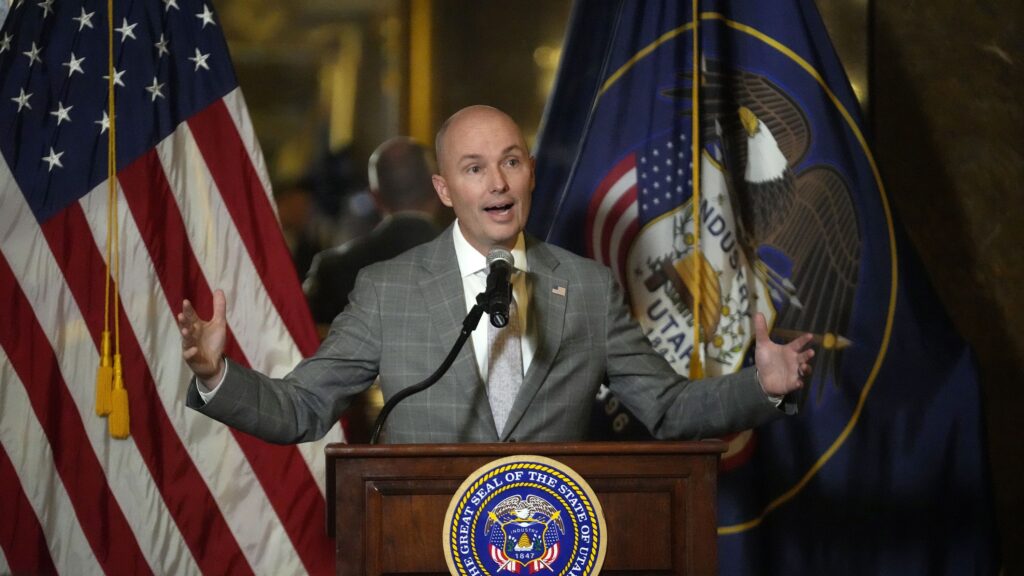SLOAN | Omicron hysteria distracts government from bigger problems


There is a lot happening this week.
We all know, presumably, that the Supreme Court is hearing a pretty important case concerning the legal durability of Roe vs. Wade, which will ensure that abortion will remain an incendiary issue for the foreseeable future.
Across the water, Iran is trying its level best to reinstate the deal made under President Obama to allow them to continue to develop a nuclear weapon more or less unimpeded, and all indications are that they may get everything they ask for and more.
Meanwhile, Beijing has issued arrest warrants for two pro-democracy activists for encouraging a boycott of this month’s sham election – an election in which all of the candidates had to receive approval from the Communist Party. The same Beijing which is rapidly developing hypersonic missile technology that could effectively hobble the U.S. aircraft carrier fleet well beyond any useful range, taking the American Navy out of the power-projection business in the western pacific.
If you missed all that, it’s probably because so much energy has been devoted to official obsession over the emergence of yet another COVID-19 variant, this time in South Africa, the sinister-sounding “omicron” variant. The ominous moniker is, of course, just the next letter in the Greek alphabet, which serves a taxonomical role in naming the variants, the official namers having decided to skip the previous two letters: “nu”, for its confusion-inducing symmetry with the word “new”, and “xi” – well, you can come to your own conclusions as to why they diplomatically chose to hop over “xi”.
The financial markets have cooled down after a bout of hysteria last Friday upon the announcement of the discovery of the new strain, but omicron is nevertheless causing paroxysms of joyous panic among some hyperactive public-health types and particularly officious government bureaucrats who had begun to lament the loosening of their chokehold on public life.
Bureaucrats in the Denver Metro Area were a bit ahead of the curve, reinstating indoor mask mandates just in time for Thanksgiving, while tut-tutting Governor Polis for, to his credit, refusing to commit the entire state to pointless symbolism. The justification, such as it is, is to arrest the overwhelming of state hospital systems and maintain availability of ICU beds. These are legitimate concerns; as I pointed early in the pandemic, two sure harbingers of societal collapse are when hospitals become so overwhelmed they can no longer function, and the breakdown of order created by an erosion of police protection.
But there is a definitional element to it. Reports tell of how some hospitals are utilizing 80 or 90% of available ICU beds; which sounds dramatic, though one is then entitled to wonder what is an acceptable amount of ICU bed wastage? Aren’t hospitals supposed to be at pretty close to that capacity? Don’t they end up shutting their doors if the medical demand is demonstrably not there?
In Canada, they have been far slower at easing COVID-related restrictions than here in the U.S., with much of the country remaining on effective lockdown until rather recently. But they didn’t really have much choice, and not because their COVID infection rate was that much different from ours – it wasn’t – but because, due to their quasi-socialized single-payer (free!) healthcare system, their hospitals and clinics are always over-utilized, even at the best of times.
Our system, as frustratingly imperfect as it is, at least had some market-inspired leeway built into it to handle things like a pandemic far more readily. But how much is too much? That’s an economic question, which cannot be answered by government decree.
The Biden administration, true to form, cannot quite figure out an appropriate response – they were apparently just kidding, for instance, when they said a few months back that mandating vaccines was not the role of government. The White House has slouched into its accustomed default position of just doing whatever it wants regardless of the law. Just as he did when he disregarded the high court’s ruling on the constitutionality of the eviction moratorium, the President now seems intent on ignoring the court’s explicit guidance concerning its vaccine mandate for healthcare workers in facilities that receive federal funding. Mandates, incidentally, which are now the greatest contributor to the hospital staffing shortage.
For the record, I believe in the vaccines, as a miracle of capitalism and western medicine. I got the shots myself and encourage everyone who is eligible to do so as well. But government micromanagement of the situation, through lockdowns, or mask and vaccine mandates, will be ineffective at best, counterproductive at worst, as they will only encourage the skeptics to dig in.
And government fixation on managing things largely outside their control distracts from its duty to handle those things which ought to be, like keeping the streets safe, keeping Tehran from building a nuclear bomb, and keeping China from exporting its misery any further than it already has.
Kelly Sloan is a political and public affairs consultant and a recovering journalist based in Denver.












